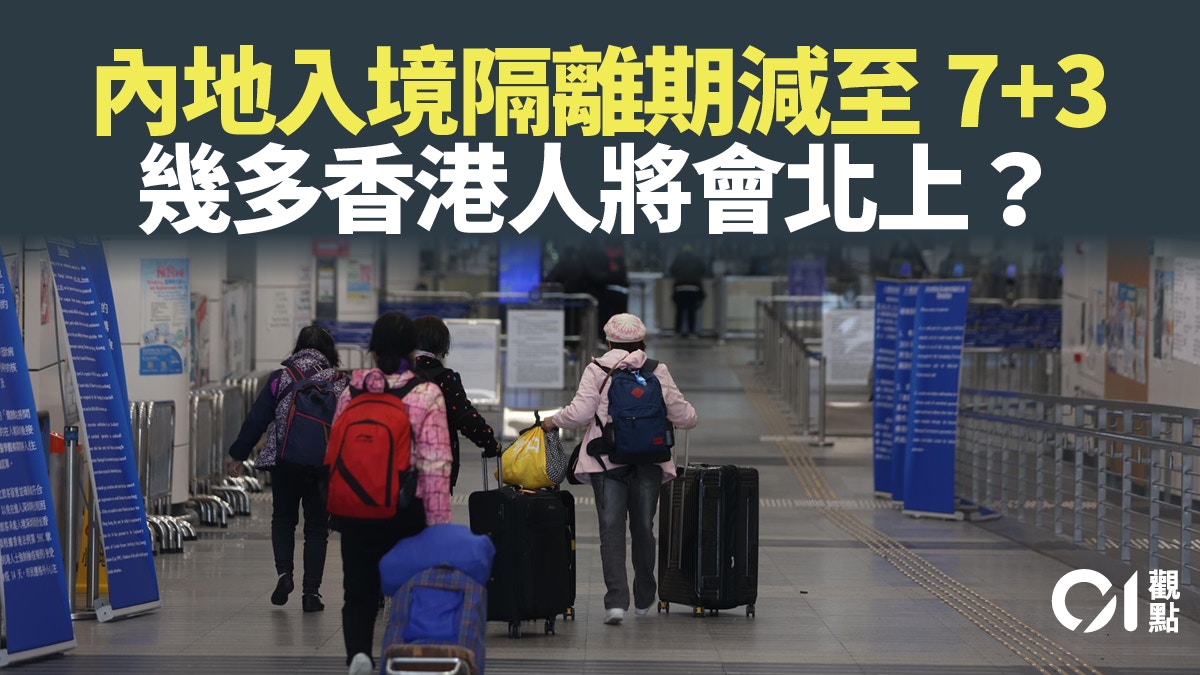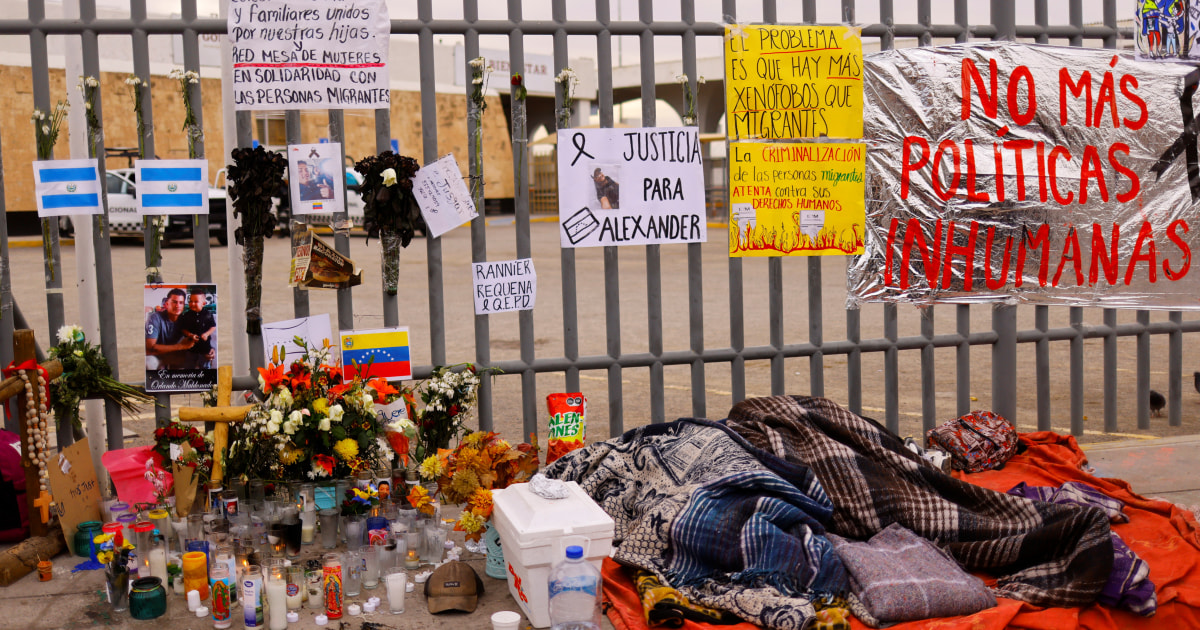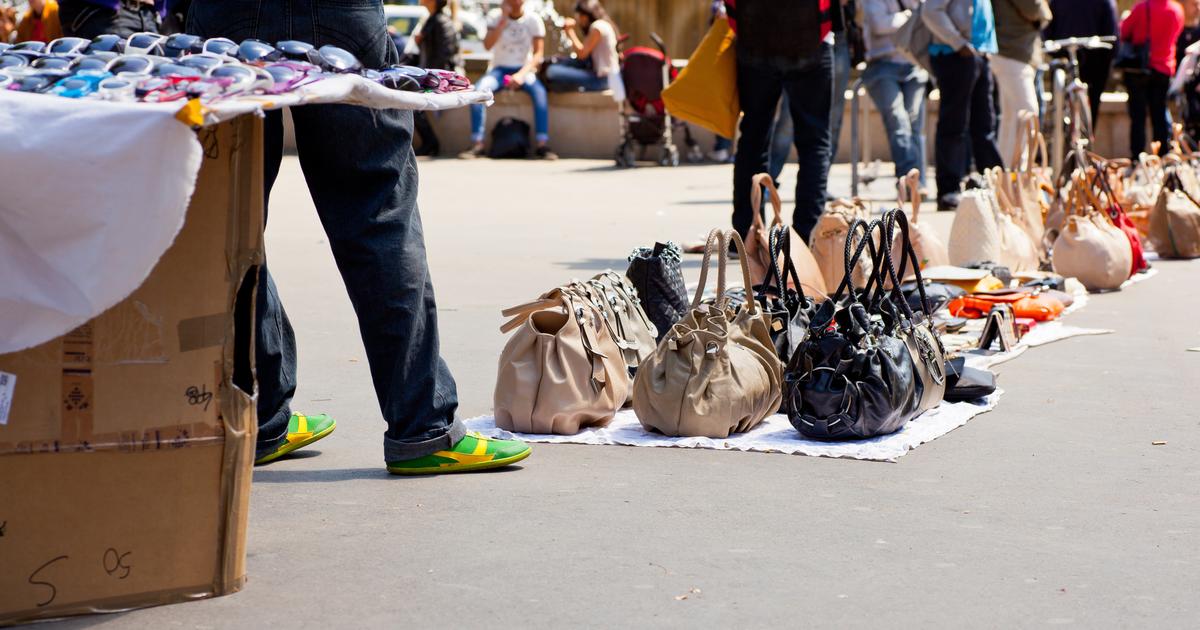The State Council has updated the COVID-19 prevention and control plan. The quarantine period for medical observation on entry has been reduced from 14 days to seven days, and the home health monitoring period has been reduced from seven days to three days, which is halved before and after. The "7+3" measures will greatly reduce the time for Hong Kong residents to enter the mainland. and monetary cost.
The new team of the Hong Kong government should step up efforts to fight for more quarantine places with the mainland to cope with the new passenger flow.
At the same time, in order to convince mainland provinces and cities that the epidemic will not rebound from the increase in inbound passenger flow, Hong Kong must strictly adhere to the measures to prevent importation and non-proliferation at home.
In addition to adjusting the quarantine period for infected people, the mainland government has also adjusted the medical observation period for close contacts, from centralized isolation to home isolation, which lasts for seven days, and adjusted the risk zone guidelines and control plans.
The National Health and Medical Commission emphasized that the adjustment of prevention and control measures is not to relax entry prevention and control, but to more scientific and precise prevention and control, such as more and more frequent nucleic acid testing, to deal with the transmission and infection mode of Omicron mutant virus strains.
It is true that Hong Kong residents are most concerned about the scope of entry quarantine in the new plan and understand that the reduction of quarantine days is also reasonable, because most residents cannot afford the time cost of "14+7", and they have visited business, negotiated business, and traveled to visit relatives for more than two years. The epidemic has almost stopped.
Seven-day hotel isolation and quarantine-free customs clearance are still far away, but they are also a step forward.
Since China and Hong Kong have been closed for a long time after the epidemic, Hong Kong people need to accept "14+7" hotels and home isolation when they go to the mainland. As a result, the number of exchanges has dropped significantly.
(file picture)
Quarantine accommodation in the north may not be enough, and it is advisable to set up a "post station" in Hong Kong
Shenzhen, Zhuhai, Beijing, Shanghai and other cities popular with Hong Kong people will implement new quarantine plans, and the new team of the Hong Kong government should work with Shenzhen and other cities to strive for more "healthy stations".
Currently, there are only 800 daily places at Shenzhen "post stations", which is less than 1% of the average daily outbound tourists in Luohu in the past, and the flow of people from the north is also restricted.
The DAB proposes to use Hong Kong's quarantine and isolation measures as the Hong Kong version of the "post station". It is also desirable to transport passengers to the border point-to-point after the quarantine period ends to meet the needs of new inbound passengers.
The adjustment of epidemic prevention measures in the Mainland is a major move, and the room for short-term readjustment is estimated to be limited.
That said, the quarantine period in the mainland is still stricter than the seven-day hotel quarantine period in Hong Kong.
The new government emphasizes that priority should be given to restoring normal customs clearance with the mainland, that is, if the mainland further reduces quarantine requirements for Hong Kong, then the epidemic prevention and control work must be more thorough, to ensure that the epidemic will not spread to the mainland with the flow of people, so as to gain the trust of the mainland authorities.
However, the recent outbreak of the harbour restaurant group reflects that health officials are hesitant to control the epidemic.
Fighting for dry port clearance must first contain the spread of the epidemic
A diners at the Harbour Restaurant in Tuen Mun contracted the virus on the 16th of this month, and the group continued to expand since then. As of Tuesday (28th), a total of 42 diners were diagnosed with the virus.
Afterwards, the Electrical and Mechanical Services Department found that the fresh air volume and ventilation volume of the restaurant were lower than the standard. During the inspection on the 23rd, the FEHD found that the restaurant had changed the ventilation system without permission and immediately prosecuted the restaurant licensee.
However, the restaurant continued to operate during this period, and it was not until the FEHD arrived at the scene to "urge" the restaurant owner to voluntarily close the business with reference to the recommendation of the Protection Center for cleaning and disinfection and to improve ventilation, and the restaurant closed after the afternoon market that day.
Chief Executive-designate Li Jiachao said that he is formulating a strategy to reopen Hong Kong's borders, clear customs with the mainland and the world, and consider allowing travelers to quarantine at home and shorten the hotel quarantine period.
(file picture)
The catering industry has been hit hard by the fifth wave of the epidemic. Naturally, the industry does not want to close its business due to the outbreak. Just as the outbreak of the epidemic in bars has only increased the requirement of rapid testing for diners.
However, ventilation is an important means of epidemic control, and the government should pay attention to it. The incident at the harbour restaurant exposed that the government did not have clear requirements for the ventilation of restaurants.
The restaurant group involved thought that as long as enough air purifiers were installed, thorough disinfection, and employee testing and environmental samples were negative, they could continue to operate.
It was not until Tuesday that Au Ka-wing, the chief doctor of the Infectious Diseases Division of the Centre for Health Protection, stated that if there is an outbreak in a restaurant involving factors such as ventilation, the FEHD will request the restaurant to temporarily suspend business and improve it.
The existing legislation is believed to have empowered the government to order individual restaurants to close down.
The Prevention and Control of Disease (Requirements and Directions) (Business and Premises) Regulation (Cap. 599F) allows the Secretary for Food and Health to issue "for the purpose of preventing, defending against, delaying or otherwise controlling the case or spread of a specified disease" Instructed to "close any catering business premises", so the bureau should be able to directly instruct the restaurant involved to close.
Even section 128C of the Public Health and Municipal Services Ordinance, Chapter 132, which existed for a long time before the epidemic, empowered FEHD to close premises that constituted an immediate health hazard.
In other words, if there is sufficient need for epidemic prevention, there is no reason for the FEHD to only urge restaurants to close their business.
The number of new local infections in Hong Kong is approaching 2,000 every day. Although the number of serious illness deaths is only a small number, the society cannot take it lightly. After all, compared with the mainland, Hong Kong is still the city with the most cases.
As the Hong Kong government strives to clear customs with the mainland, it must first stop the spread of the virus in Hong Kong and reduce the chance of exporting the virus. Therefore, the epidemic control work must be decisive.
The current government is unable to suppress the epidemic any longer, and the only way to do this is to entrust the Medical and Health Bureau under the new government.
Can Li Jiachao help Hong Kong clear customs?
Quarantine sick leave is only available after the epidemic, why is the policy always "late"?
The way to fight the epidemic is not to wait and see















